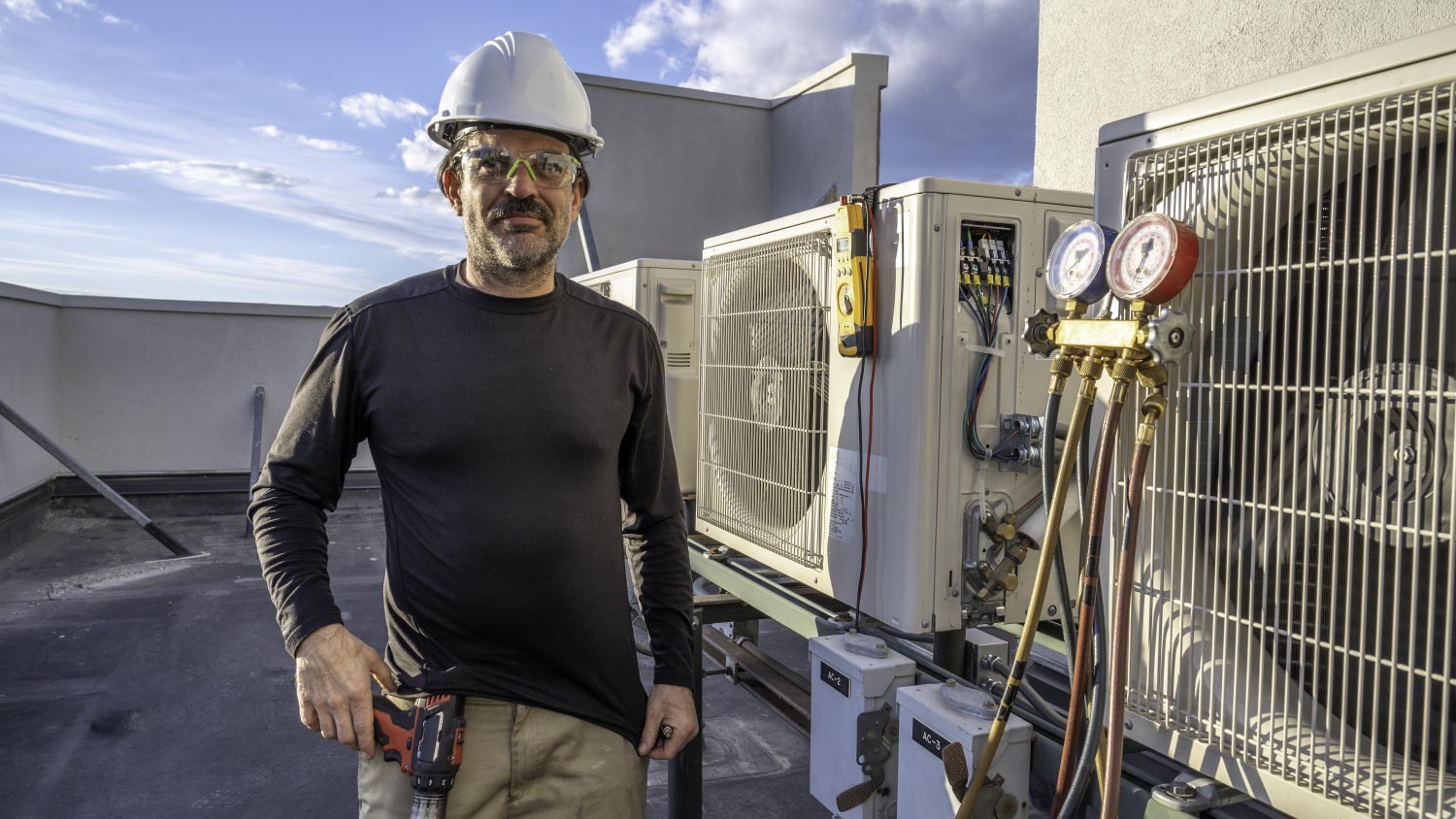
Discover the factors influencing air duct replacement costs in Los Angeles, CA. Learn how to save money and make an informed decision for your home's comfort.
Understanding HVAC certifications can help you make an informed decision when hiring a technician
There are several different types of HVAC certifications.
Achieving each type involves a certain level of knowledge.
HVAC pros have different options for earning certifications.
The HVAC system in your home plays a big part in everyone's comfort level, so it's important to ensure all the parts are running smoothly. Since tackling a furnace outage or air conditioner coil problem is best left to a pro, hiring a certified HVAC technician is always the best idea. There are several levels to obtaining the proper HVAC certification and education, so we're breaking down the different training options.
HVAC systems are found not just in homes but also in nearly every building in existence. The large units responsible for heating, ventilating, and cooling stores, restaurants, and schools require frequent maintenance, so pursuing a career as an HVAC technician opens up a wealth of job opportunities.
Obtaining an HVAC certification means a technician has completed the proper training, passed any necessary tests, and met the industry standards and requirements. It's essential to be aware of the different types of certifications when hiring a professional HVAC company near you.

There are several different types of HVAC certifications, each showing a technician has completed the required training and proved knowledgeable in that particular area.

The North American Technician Excellence (NATE) certification is a nationally recognized and respected certification for HVAC technicians. While this certification isn't legally required, many employers want their technicians to have it. Different knowledge-based tests fall under the NATE umbrella, including air conditioning, gas furnaces, and oil heating. Certification can be earned in one or more of these specialty areas, and having it illustrates that a technician has the professional knowledge to diagnose and repair HVAC equipment.
R-410A is a commonly used refrigerant, similar to Freon. Because of its extreme high pressure, technicians who work with R-410A are advised to take a special training course to use it safely.
Technicians with Indoor Air Quality certification (IAQ) have passed an exam demonstrating they understand the steps necessary to install, maintain, and repair HVAC air quality systems. Air conditioning units are prone to issues, so hiring a technician with IAQ certification can help homeowners keep their systems running at optimal capacity.
Preventive maintenance HVAC certification means a technician has the knowledge to troubleshoot potential problems during routine maintenance. Keeping up with regular HVAC maintenance helps customers avoid emergencies since the technician can spot and diagnose any issues that may lead to bigger complications down the road. Expect to pay about $75 to $200 for the cost of HVAC maintenance.
The Environmental Protection Agency (EPA) requires any HVAC technicians who work with refrigerants to have an appropriate certification. Passing these certification exams indicates that a technician knows how to handle these hazardous materials safely.
There are three levels available:
Type 1 EPA certification: Certified to service small appliances that contain less than 5 pounds of refrigerant, such as residential refrigerators and freezers
Type 2 EPA certification: Certified to service and/or dispose of high-pressure appliances, including outdoor AC units and commercial refrigerators and freezers
Type 3 EPA certification: Certified to service and/or dispose of low-pressure appliances, which use a refrigerant with a boiling point above 50 degrees Fahrenheit
Universal EPA certification: When an HVAC technician has all three certifications and can work with refrigerants on all types of equipment
The minimum education requirement for an HVAC technician is a high school diploma or General Educational Development (GED). Reputable companies, however, are usually searching for employees with additional education and experience.
Heating and cooling employers seek technicians who have obtained a certificate or associate's degree from an accredited HVAC technology training program. Since these programs cover important topics such as system designs, installation, ductwork, plumbing, and safety, technicians who have completed the coursework are better prepared to work on various projects.
Most apprenticeships last for three to five years and give recent graduates insight into different areas of HVAC repair. Trade organizations, such as Air Conditioning Contractors of America and the National Association of Home Builders, have experienced members who help with training and mentoring new technicians.
An HVAC license provides proof the technician has completed professional training. License requirements vary by state, and many require proof of liability and workers’ comp insurance as well. It’s a good idea to check with your state's professional licensing department to review the status of a license.
From average costs to expert advice, get all the answers you need to get your job done.

Discover the factors influencing air duct replacement costs in Los Angeles, CA. Learn how to save money and make an informed decision for your home's comfort.

The average boiler installation cost depends on size, system type, and other factors. Keep reading to learn the cost of a new boiler in Los Angeles, CA.

What you’ll pay in Los Angeles for furnace repairs depends on many factors. Here’s a breakdown of what can go wrong and the cost to fix those issues.

Even when you're sweating up a storm on a hot day, your AC should keep its cool. Here's what to do when condensation on your AC signals larger problems.

The best ductwork for crawl spaces depends on the condition of your crawl space area. Read on to learn more and choose the right ducts.

Do you have a clogged AC drain line? We dig into the reasons behind those pesky blockages and how to clear them for optimal AC performance.